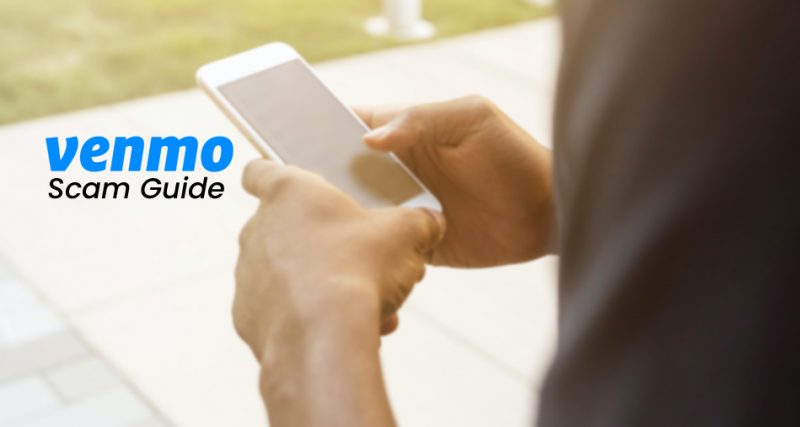It’s quite the norm these days to pay and receive money via digital wallets. Venmo is a payment service, a US peer-to-peer payment app through which you can send and receive money on request from friends and family. It’s quite popular with youngsters as they use Venmo features to split lunch bills, and pay half their share of cab or house rent. Venmo can also be used to make purchases with authorized merchants. You can choose to pay people from your Venmo balance, a credit/debit card, or a US bank account.
All said and done, you should also be aware of Venmo fraud rates which are rampant these days. Let us take a look at the most common Venmo scams and what you can do to protect yourself from huge financial losses.
What are Venmo Scams?
Venmo scams are tricks that are used by scammers on Venmo users in sending them money or personal information like bank account details or Social Security Number (SSN). Scammers target Venmo users because Venmo transfers happen instantly and are not verified for a few days; this can make it challenging for banks to catch scammers using stolen credit cards or bank accounts. Oftentimes, the stolen money cannot be recovered despite a fraud complaint by the real account holder. Credit and debit cards have a fraud protection system in place, but unfortunately the success rate of cash recovery is not so promising after being scammed on Venmo as this is much more anonymous than other payment processing companies.
Venmo Scams to Watch Out For
- Accidental Money Transfers — Beware never to fall for this trap as it looks innocuous on the surface but it really isn’t. The scammer feigns an apology by sending money to you by mistake and then requests for a refund. A similar message might appear on Venmo “Sorry I paid with the wrong card”. It’s best not to respond to such messages, or deposit unexpected transfers into your account.
- Fake Friends Requesting Monetary Help — Scammers change their profile pictures and impersonate someone known to you. Then they message you with a sense of urgency requesting money for imaginary scenarios like a medical emergency, debt/bill clearance, etc. Fraudsters pull out information from your social media profiles, your online footprint, and public Venmo transactions to know enough about you. Please go by your gut feelings if anything seems off-key and out of character with regards to the friend they impersonate. Also, keep your privacy settings updated on Venmo so that it doesn’t get shared publicly.
- Scammers Selling Rare Things Online — Do not be tempted to buy anything online from a stranger when it is frustrating to purchase them from legit merchants/retailers elsewhere. Scammers are always on the lookout for soft targets who fall for their fake ads for in-demand items on reselling apps and Marketplaces. Once you show interest in purchasing and reach out to them, they will send you a message demanding money on Venmo. They will immediately disappear with the money and the product you thought you purchased once you complete the transaction. The takeaway is that you must not use Venmo to purchase items from unknown people online.
- Strangers Making Requests To Use Your Phone — The trick is that they approach you in public and make a request to use your phone on some pretext (their own having a dead battery or lost it at a crowded marketplace). You being the good samaritan unsuspectingly hand out your phone to them. They will fake to make a call somewhere which they claim goes unanswered. They will hang on a little bit longer pretending to send a text to that imaginary person. Instead, they use this opportunity to open your Venmo account and send transfers to themselves. A good way to protect yourself from such scammers is to have your Venmo accounts locked with a pin or a touch ID, and offering to help them yourself instead of handing out your device with sensitive information to strangers.
- Phishing Attacks in The Form of Fake Emails — Here scammers claim to be from reputable, legitimate business organizations (in this case Venmo). To trick users, they replicate the logos, colors, and formatting styles of Venmo to leave no trace of doubt in the minds of their victims. The email will almost always contain a link for verification of personal information which the scammers can later use for identity thefts for their fraudulent practices. Never click on unknown links; no reputable institution will ever send links for verification of personal information. Before acting on impulse, stop to contact the business (the scammers are impersonating) to inform them about the incident. Delete the email right away.
If you have been a victim of such a scam, here are 3 ways to report and get help.
1) Report to Venmo and Protect Yourself from Future Frauds

Immediately let Venmo know the moment you realize that you were scammed. You can write to support@venmo.com or use their web-based ticket system Because of an increasing number of Venmo scams, the company is taking proactive and corrective measures to address spoof communication that includes text messages and emails. They review all submissions and work in tandem with the law enforcement authorities to check these cyber crimes. Please read their guidelines to help you protect yourself from future frauds.
Please note though that Venmo will not refund you the lost money, and typically does not get involved in financial disputes between users. You are better off contacting your bank, and try reversing a pending payment.
At Venmo, you can enlist the help of their support services. Send them any attachments, screenshots, and share any important communication that you had with the scammers. Mention them the date and time of the incident, and give full details as to how they contacted you, with what username, from which ID, amount of any payment you made, etc. This will enable them to forward the specifics to the concerned law enforcement agencies.
2) Contact Fraud Dept. of Local Law Enforcement Agency

Venmo might not be of much help even when you need to take them into the loop and reprise them of the matter. What you can do instead is to try to file a chargeback or dispute with the payment method with your bank or credit card company. And for this, you will first require a police report. Approach the fraud department of the police station in your area. They will create a file with a case file number that you can reference for all your legit attempts to get your money back. Provide all necessary details to the police (just as you did at Venmo) to help them build a strong case against the fraudsters.
3) File a Complaint with the Federal Trade Commission

The FTC works to protect the public from unfair and corrupt business practices, and works in tandem with the law enforcement agencies to book the culprits under the law. It is important to report the matter at length at FTC and without delay if you have provided sensitive information like your name, address, credit card number, or Social Security Number to the scammers, which can be used against you for identity thefts. Report the scam to official government authorities by either calling them (1-877-FTC-HELP), or by visiting the link here.

